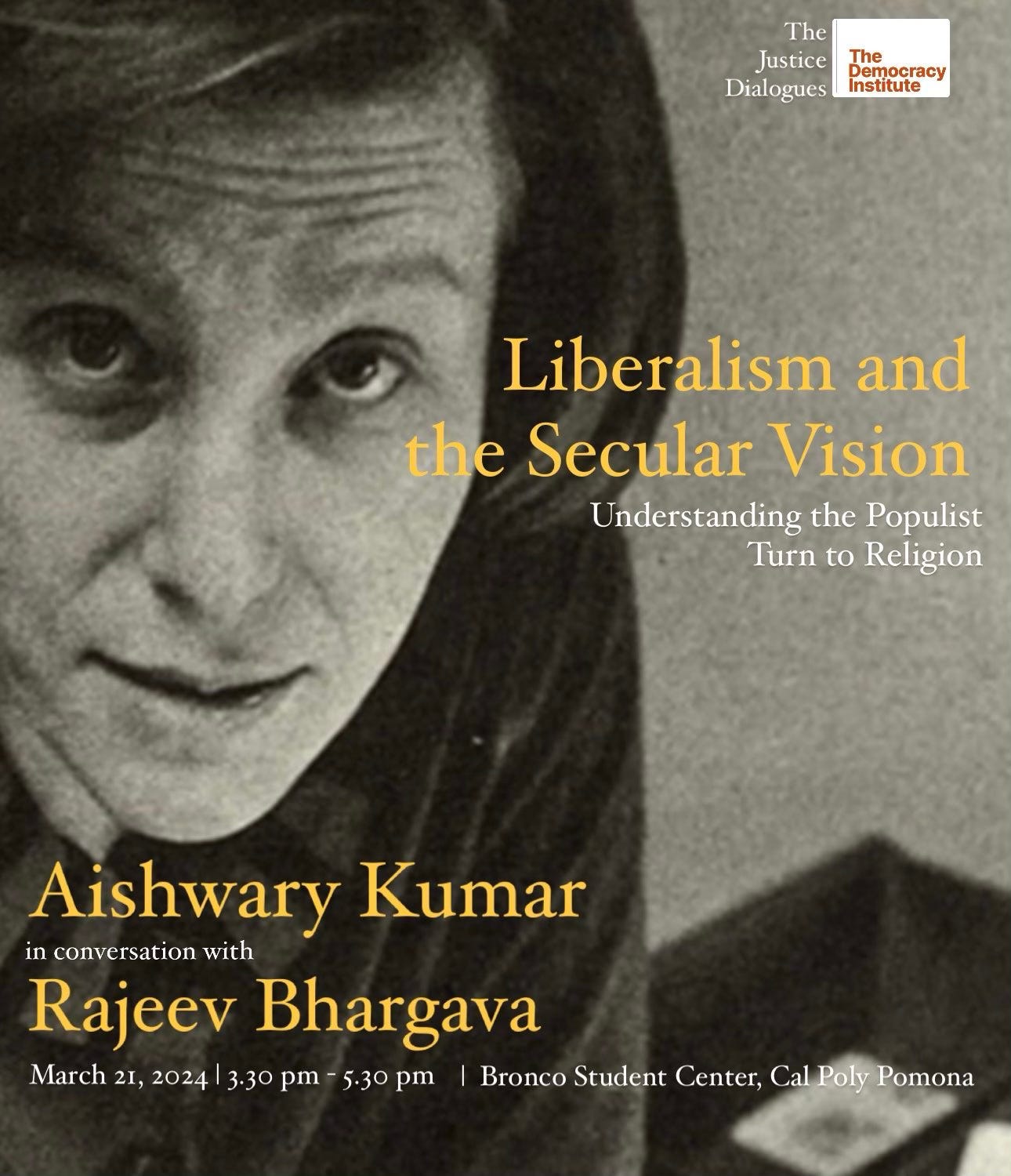The Justice Dialogues on Liberalism and the Secular Vision

For better and for worse, the modern democratic experiment has always harbored within it a principled religious dimension: that something greater than our individual self-interest—a common, shared faith—must bind us together as citizens and equals on earth. Some of the greatest accomplishments of our civic and social contract rest on the faith that political majorities can be trusted to make decisions and laws that benefit even the most vulnerable, stigmatized, and outcast minorities who live next to them. Secularism can be viewed as one way of resolving this intractable—and historically violent—relationship between faith, inequality, and freedom.
As that humanist vision fumbles today, the most brazen attacks on human freedom and civil rights are carried out in the name of religious liberty by evangelicals and religious nationalists who openly profess their affinity for political violence and the fascist state. After a relatively quiet, resentful 20thcentury, evangelical hostility towards liberalism and its secular vision has returned to mass politics with a vengeance.
To ask the question, as Peter Wehner asks, “Where did Evangelicals go wrong?” is one way to proceed. With over one dozen leading countries of the world going into general elections this decisive year for global politics, we instead decided to follow Judith Shklar’s lead and ask: can liberal democracy survive the new theocratic assault and its politics of fear? And how do we now understand political faith?
Beginning Fall 2024, The Justice Dialogues will be hosted by The Democracy Institute.
